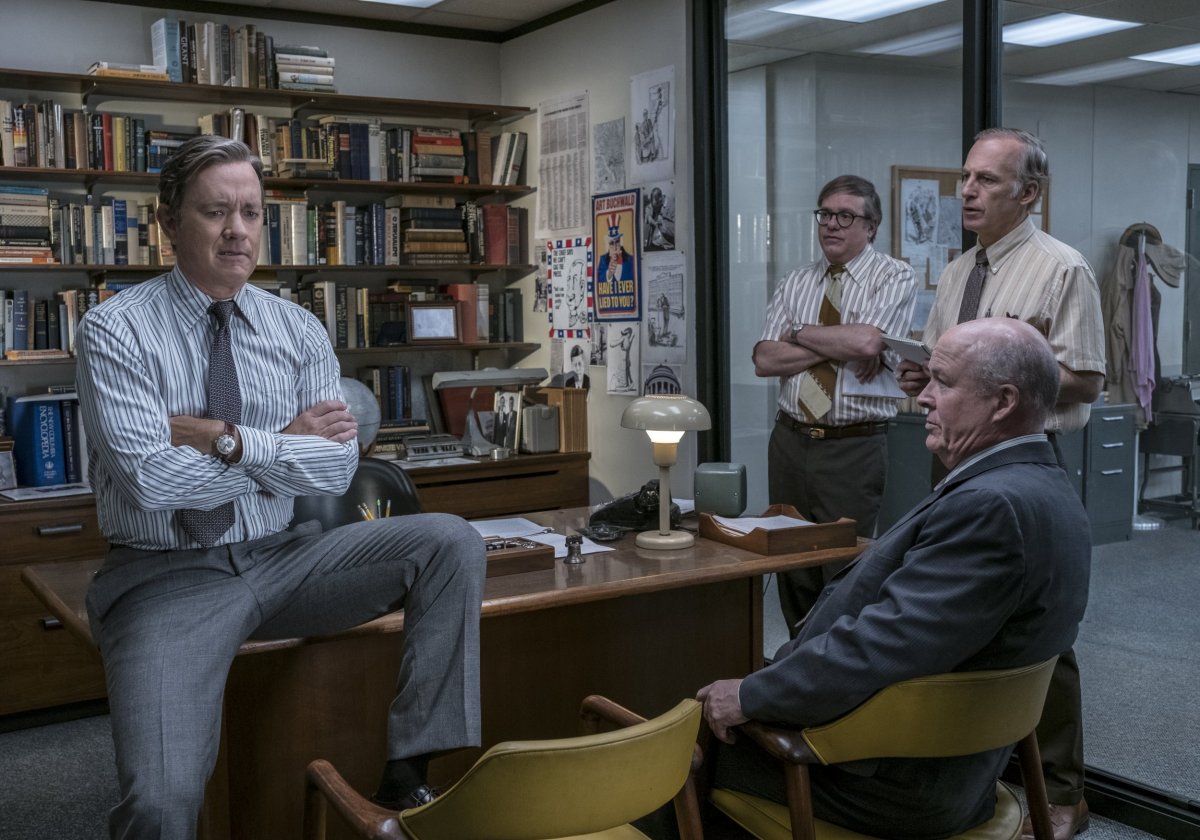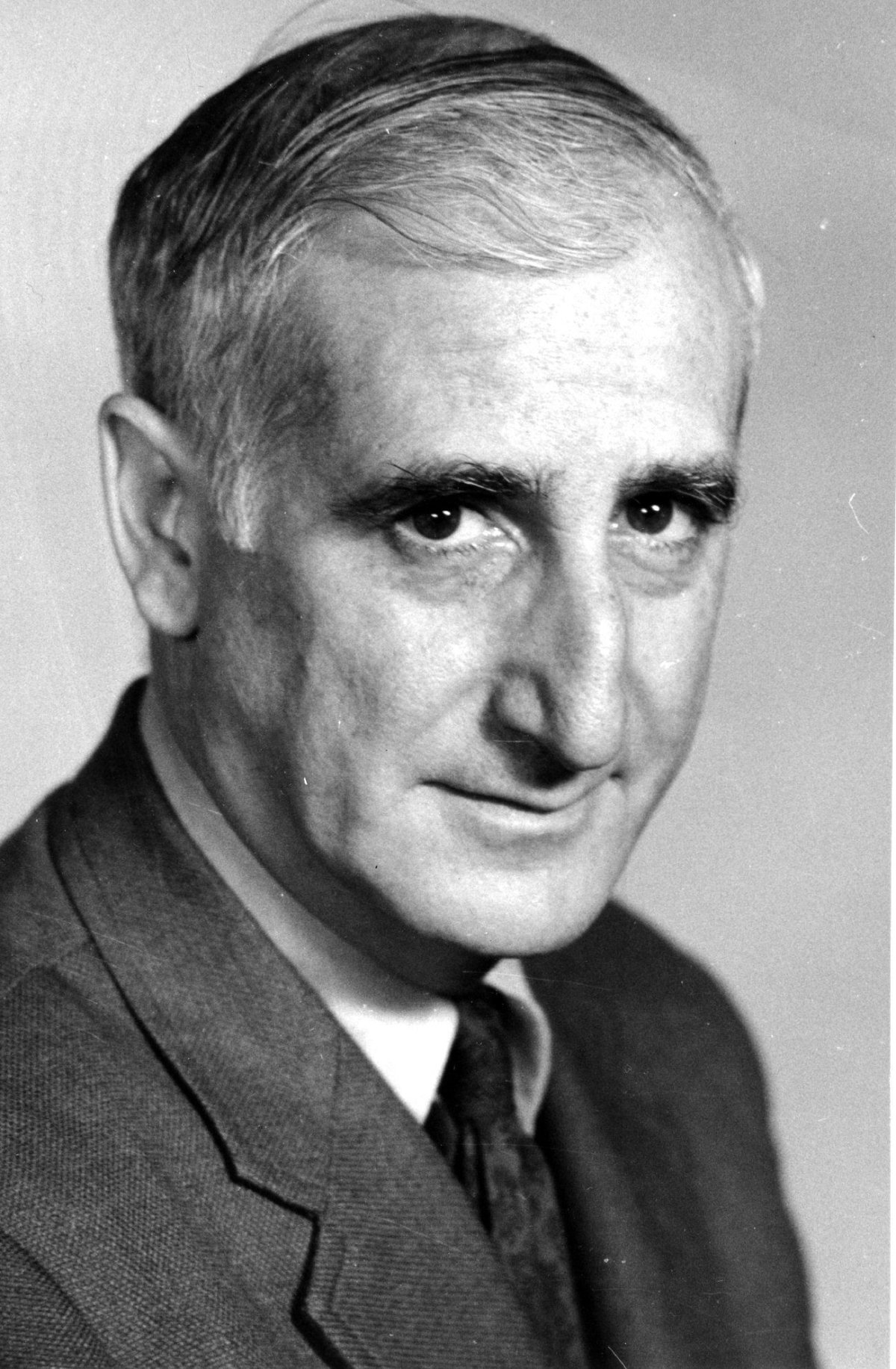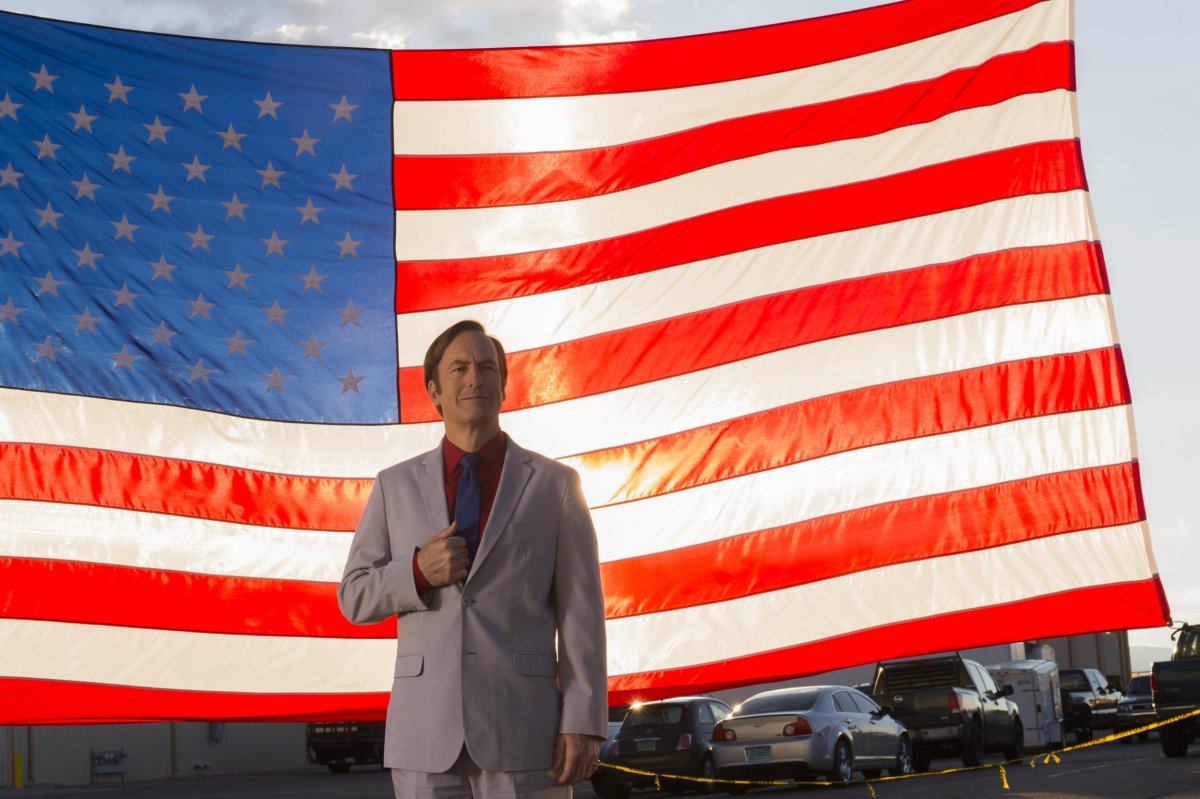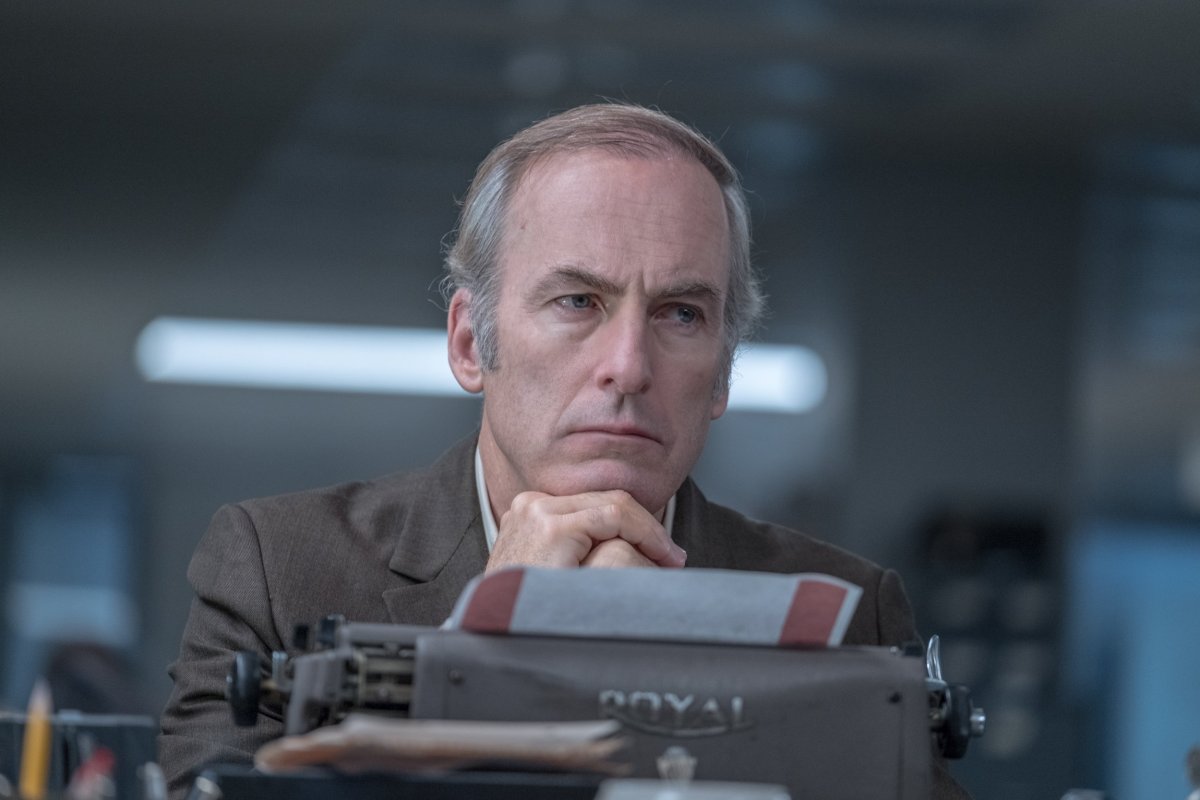Bob Odenkirk has had a slow-burn evolution from cult comedian to one of Hollywood's most compelling character actors. After co-creating the irreverent sketch comedy show Mr. Show with David Cross in 1995, Odenkirk appeared in bit parts, wrote for Dana Carvey and produced the TV series Tom Goes to the Mayor. But in 2009, he broke out as sleazy, opportunistic lawyer Saul Goodman on Breaking Bad. He was so good, show creator Vince Gilligan built a prequel series around him: AMC's Better Call Saul, for which he's been nominated for Emmys and Golden Globe three years in a row.
None of that was obvious prep for working with Tom Hanks and Meryl Streep on the Steven Spielberg film The Post. "It's intimidating, because you really don't want to let Steven down," Odenkirk says. He plays Ben Bagdikian, the Washington Post reporter who wrote about the Pentagon Papers, the secret government assessment of the country's chances in Vietnam, leaked by Daniel Ellsberg in 1971. The role is 180 degrees away from the duplicitous Saul Goodman/Jimmy McGill, but Odenkirk connected with the more "straightforward" Bagdikian. "I relate to getting to be the voice of your basic principles."
In one of your first scenes, you're sitting next to your sometime comedy partner David Cross, who plays Washington Post managing editor Howard Simons in the film. For a millisecond it was Mr. Show, circa 1970. What was it like being in the film together?
We enjoyed it—we laughed our asses off! Steven kept putting us right next to each other in and we weren't sure if he was a Mr. Show fan who was trying to celebrate our legacy. About two weeks into shooting, the screenwriter Zak Penn came to the set. Zak is a huge fan of Mr. Show. He wrote Ready Player One, which Steven is directing, so he was there to talk about that. And he went nuts, seeing us together in a scene. Steven said to him, "Is everything alright?" When Zak explained [our connection], Steven was a little concerned that it might be too disruptive. But I don't think it hurts the movie. [Laughs] It's a little extra Easter egg for Mr. Show fans.

Tell me about Ben Bagdikan, the journalist you play. I knew of Kay Graham, who owned The Post—played by Meryl Streep—and I knew Ben Bradlee, it's editor—played by Tom Hanks—but I'd never heard of your character.
Ben was a real guy who you can see on YouTube, if you want, because I watched him to try to do the voice right. And I read his autobiography, Double Vision, which is great. Journalism was his calling, he loved it. He did it, he taught it—he was a professor of journalism—and he's a great dude.
The journalists Bob Woodward and Carl Bernstein became as famous as their 1973 Post stories on Watergate (featured in their book All the President's Men). Yet despite Bagdikan's important work writing about the Pentagon Papers, published two years earlier, he was overshadowed by his story.
Ben was less of a personality than [Woodward and Bernstein]. In Ben's book, he talks about his early career and how he learned to disappear as a journalist, to blend in, so that people will be forthcoming. That was his approach, and in most of my scenes I tried to hang in the background. He also had Ben Bradlee's ear and he knew it, and he didn't want to take advantage of that. He waited for his moment.

Is that tough for you as an actor, to play a character who hangs back?
I've only been a lead in Better Call Saul. Before that I was part of a lot of ensembles. And when I did my own [comedy] shows, I'd play the main character sometimes, sometimes not. I've spent most of my career in ensembles and I'm good with that.
From a truth-telling perspective, Bagdikan seems remarkably pure.
He was. His dad was a minister and I think he treated journalism the way his dad treated religion, you know? That was what he was going to live for, the principles of journalism.
Better Call Saul is a show about the not-so-truthful. Was playing Bagdikan like flexing another muscle?
I suppose if you saw Ben in his personal life, he'd probably have as complicated a personal life as anyone. But the character of Jimmy McGill/Saul Goodman—he's working and living at such cross purposes to his instincts and his talents, so It's all a mess. He can't sort himself out. Ben had sorted himself out, quite well, in life and knew exactly what he was about and pursued it and succeeded in pursuing it. So, I don't know if Ben is easier to play, but he's more straightforward, for sure.

Was there a personality trait of Ben's that you really connected to as a person?
Standing by your principles. Ben had a special position that allowed him to do that. Bradlee was in charge and Ben knew that he could be the voice of their shared principles and not have to worry about balancing everything out. Whereas Bradlee, for all of his fire, was more in management.
I've been in charge, where you have to listen to every side. But I can relate to being the person in the back of the room who claims to know what's right, and does know what's right, but also has the luxury of being blunt because he's not in charge. I've been that person in a lot of rooms. It's an indulgence, but a good one, to be the one who gets to speak up for the core principles and never waver and never have to see both sides.
Do you have a preference to being the guy in the back or the guy who's in charge?
I probably do better when I'm in charge. But it's good to be able to be a part of something and be a supporter and help make a project work.
What's it like to be directed by Spielberg?
It's intimidating because you really don't want to let Steven down. He's such a good man and so good at what he does. That's how you feel for all directors, but on other sets there might be more of a negotiation—only because the director isn't sure of what he wants. In Steven's case, he knows exactly what he wants, to the second, to the frame.

What did you learn from working with him?
It was similar to my experience on the Alexander Payne film Nebraska, in that both of those guys, they're final arbiters of the image and the storytelling. As a result, there's just a... precision to what they want and what they're asking you for. It's a different class of director.
With All the President's Men, the filmmakers brought garbage from the Washington Post newsroom to give the movie set authenticity. Was a similar effort made for The Post?
A great deal of effort, yes. The newsroom in The Post is not the same newsroom as the one you see in All the President's Men, and that's because the Post moved offices between those two stories. Ours is the previous office, and everything in it is from that time period, even the documents. We would walk around the set and pick up a piece of paper that was a subscriber's complaint, or a missive to Ben Bradlee from a friend. They were fun to read. Additionally, when you see us working on the Pentagon Papers in Ben Bradlee's house—the scenes where we're trying to sort through them because we have to do it overnight? Those are the real Papers. Everybody was a reader on the set, and we'd devour them between scenes. They're very readable, and pretty much one-sided in their point of view: There's no way to win in Vietnam, in a traditional manner of winning.
Did you have any experience with the Pentagon Papers before making the movie?
I knew what they were. My godfather, Phil Boyle, gave everything in Vietnam; he did two tours and he came back but his life was fundamentally altered. So Vietnam was in my life because it was in the news but also because of Phil.
Did that personal experience come into play when you read the Papers on set?
You can't help but think about all the men and women who went to Vietnam, who got stuck in the quicksand of that impossible challenge. I've heard it described as a civil war, that we tried to get control of a civil war. But you have to let the people hash it out amongst themselves. It was a quagmire, but that's what the Papers say. The RAND Corporation [where Ellsberg worked] is not a liberal bastion, you know? And I'm told Ellsberg was a military guy when he was younger.
The beginning of the movie is all about Ellsberg's complete reversal in his thinking about the war.
After being a soldier, he went into research and reporting, and he went to Vietnam and changed his mind. It's really something to read the Pentagon Papers, because those guys, the people who wrote them—and there were a lot of people—are approaching the war from all kinds of different angles, and a lot of times they're spending time with the troops. So you're getting a very personal view on the war
Uncommon Knowledge
Newsweek is committed to challenging conventional wisdom and finding connections in the search for common ground.
Newsweek is committed to challenging conventional wisdom and finding connections in the search for common ground.
About the writer
Dante is an award-winning editor and writer who has contributed features, profiles, and criticism to the Paris Review, Time, The Daily ... Read more
To read how Newsweek uses AI as a newsroom tool, Click here.








